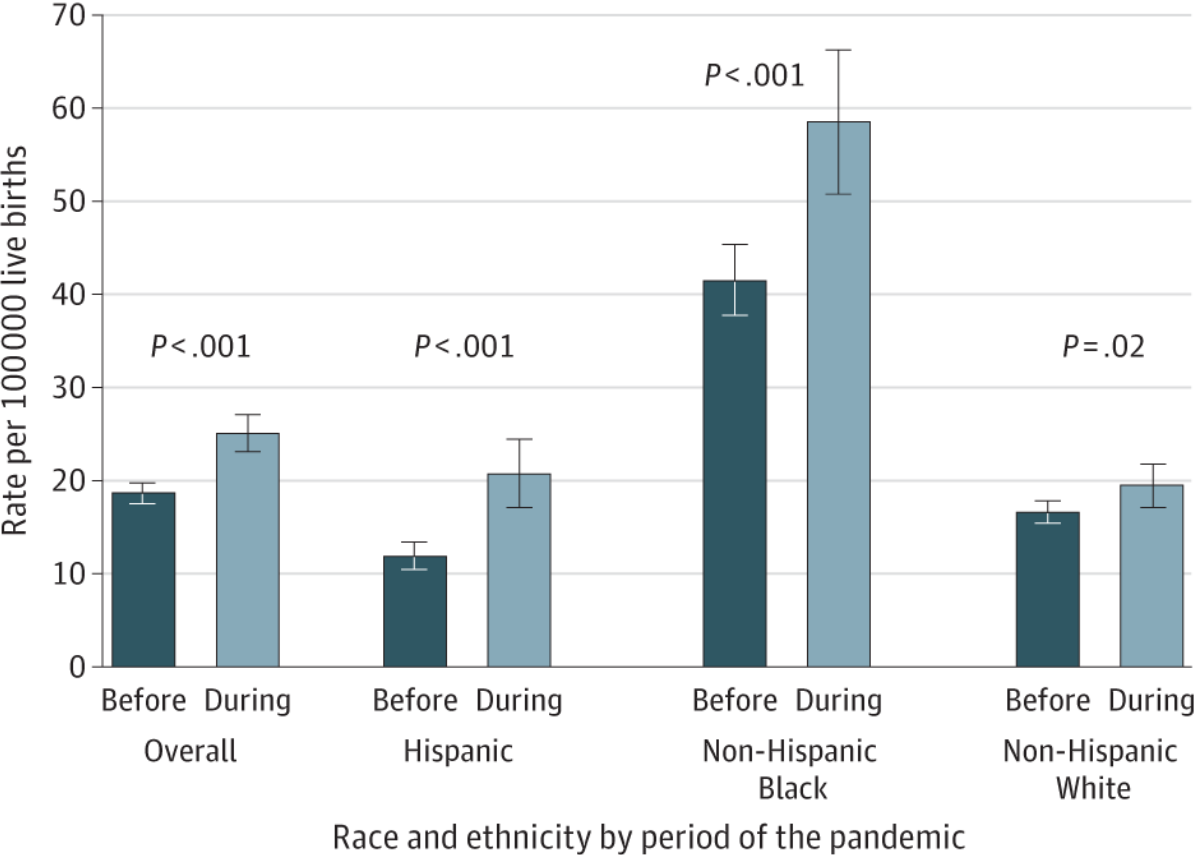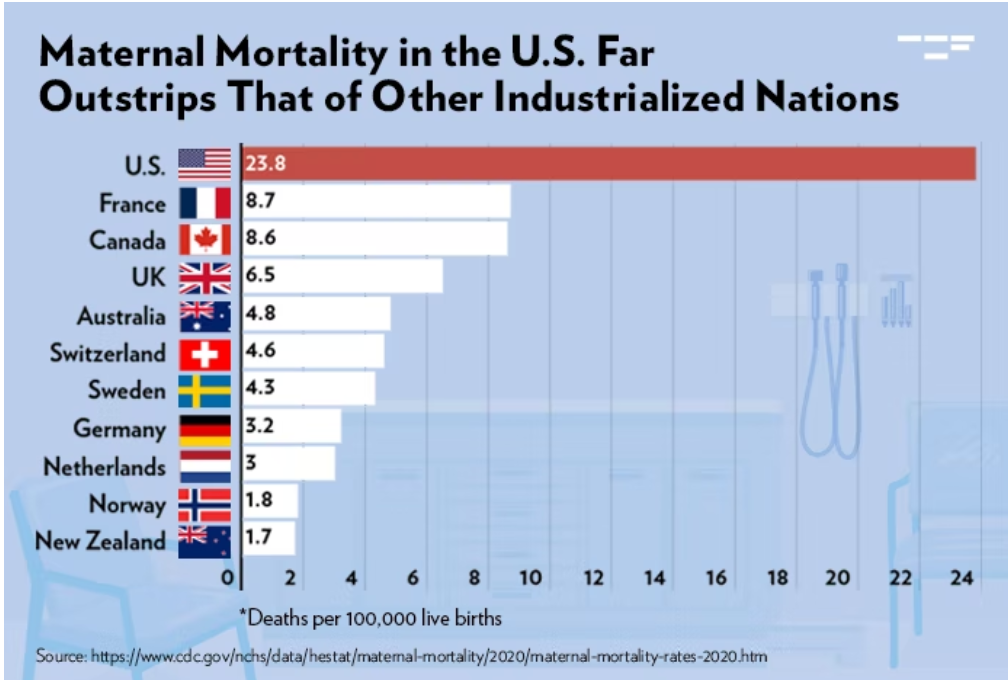
Share On Social!
Prior to the pandemic (2007-2016), Latinas had a comparable maternal mortality rate to White women, according to the Kaiser Family Foundation.
However, a new analysis from the University of Maryland and Boston University suggests that Latinas now bear a higher maternal mortality rate compared to white women, a trend not seen in over a decade.
The Latina maternal mortality rate rose an alarming 74.2% from 2018-March 2020, when the pandemic began, to April-December 2020, according to the study, published in JAMA Network Open.
In comparison, White women’s maternal mortality rate rose just 17.2% during the same time.
 “For the first time in more than a decade, the maternal mortality rate for Hispanic women during the pandemic was higher than that for non-Hispanic white women, a shift that may be related to COVID and deserves greater attention moving forward,” Dr. Gene Declercq, the second study author of the Boston University School of Public Health, said in a press release.
“For the first time in more than a decade, the maternal mortality rate for Hispanic women during the pandemic was higher than that for non-Hispanic white women, a shift that may be related to COVID and deserves greater attention moving forward,” Dr. Gene Declercq, the second study author of the Boston University School of Public Health, said in a press release.
How Did COVID-19 Drive the Rise in Latina Maternal Mortality?
COVID-19 was listed as a contributing factor for 32% of Latina maternal deaths due to conditions directly related to COVID-19 (respiratory or viral infection) and conditions made worse by COVID-19 infection, such as diabetes or cardiovascular disease, according to the study.
Delayed prenatal care due to interrupted healthcare access also could have played a role in maternal death for all races/ethnicities during the COVID-19 pandemic, the study authors noted.
“We need more detailed data on the specific causes of maternal deaths overall and those associated with COVID-19,” Dr. Marie Thoma, the first study author of the University of Maryland School of Public Health, said in a press release. “We’re going to continue to examine this.”
What Are the Maternal Mortality Rates in the US?
Sadly, high maternal mortality rates are nothing new in the US.
Although the US spends more on healthcare per capita than other industrialized nations, the maternal mortality rate in the US is nearly three times higher than that of France, the country with the next highest rate.
Black women have historically struggled with high maternal death rates in the US due to systemic racism, discrimination, and other health inequities, such as lack of healthcare access.
Like Latinas, Black women experienced a disproportionate rise in maternal deaths (40.2%) during the COVID-19 pandemic.
As we continue to explore the potential effects of COVID-19 on maternal death rates, we must also work to address health inequities that contribute to America’s global lead in maternal deaths.
“Policymakers and advocates must come together to lower maternal mortality rates among minority women through culturally tailored prenatal programs,” said Dr. Amelie G. Ramirez, director of Salud America! at UT Health San Antonio. “Additionally, we must continue to work toward health equity for Latina and Black women to limit the potential impacts of public health crises, such as the COVID-19 pandemic, on these vulnerable populations. Examples of health equity issues we must address include systemic racism and discrimination and equal access to healthcare.”
How Can You Push for Health Equity for Latinas?
Rising maternal mortality rates are just one health inequity facing Latinas amid COVID-19. Learn more about the baby formula shortage, rising cost of childcare, and tampon shortage.
You can help.
Select your county and get a Health Equity Report Card by Salud America! at UT Health San Antonio.
In your report card, you will see maps, data, and gauges to compare health equity issues, including access to healthcare and social vulnerability to COVID-19, to the rest of your state and nation.
You can email your Health Equity Report Card to local leaders to stimulate community change. Use the data in your materials or share on social media to raise awareness.
Get your Health Equity Report Card!
Explore More:
Maternal & Child HealthBy The Numbers
142
Percent
Expected rise in Latino cancer cases in coming years



